One Day Builds
Adam embarks on one of his most ambitious builds yet: fulfil…
Show And Tell
Adam recently completed a build of the royal St. Edwards cro…
Making
Viewers often ask to see Adam working in real-time, so this …
One Day Builds
Adam and Norm assemble a beautifully machined replica prop k…
One Day Builds
One of the ways Adam has been getting through lockdown has b…
Making
Adam unboxes and performs a quick test of this novel new hel…
Making
When Adam visited Weta Workshop early last year, he stopped …
One Day Builds
Adam tackles a shop shelf build that he's been putting off f…
Show And Tell
Time for a model kit build! This steampunk-inspired mechanic…
One Day Builds
Adam reveals his surprise Christmas present for his wife--a …






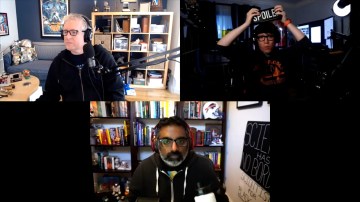



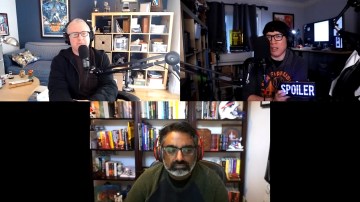









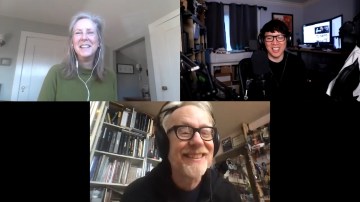
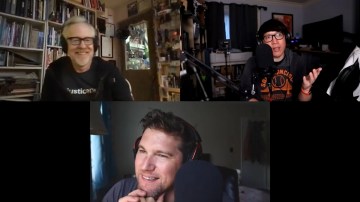


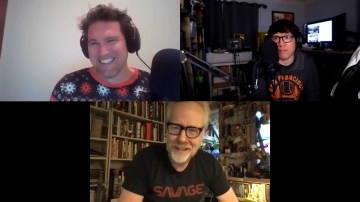


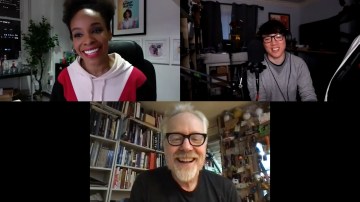


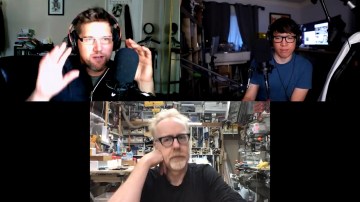

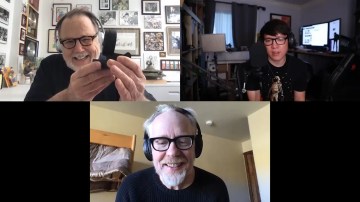


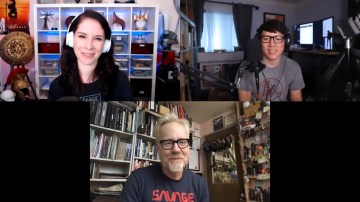
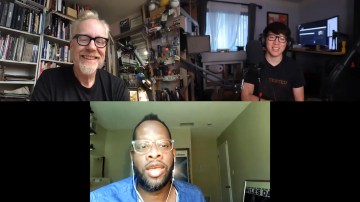

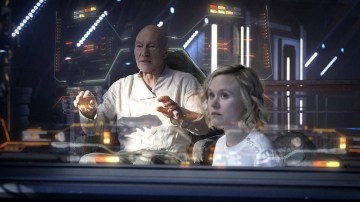
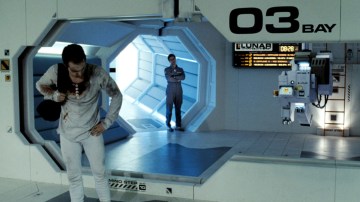




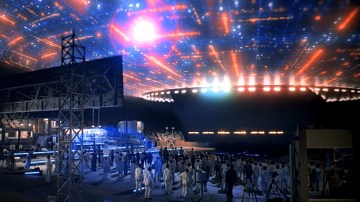

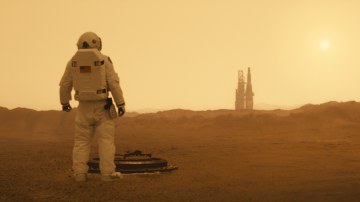

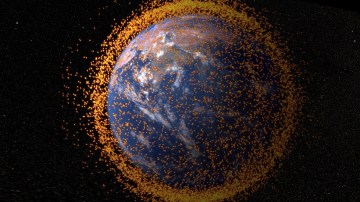
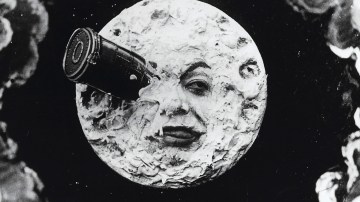
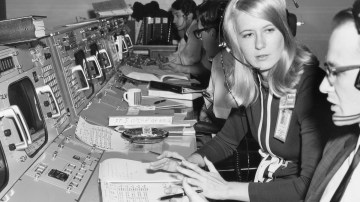
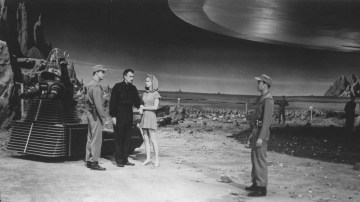
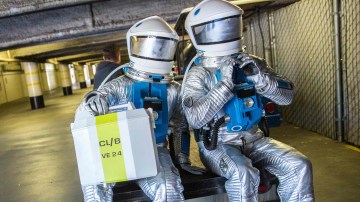
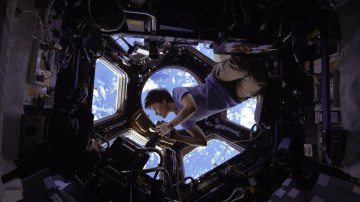
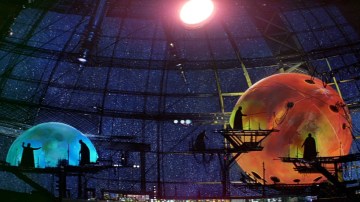


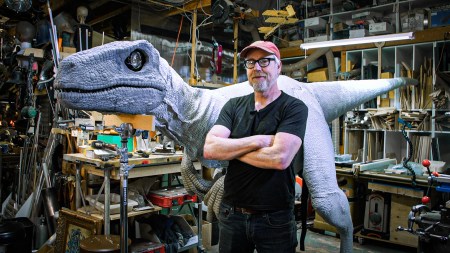

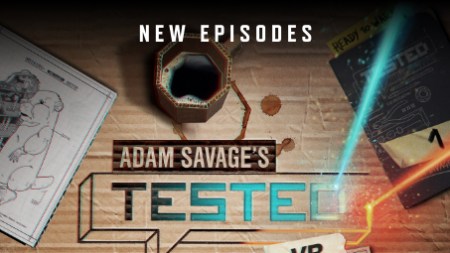
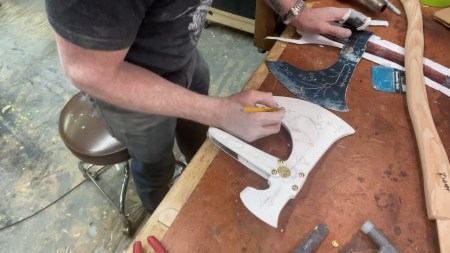


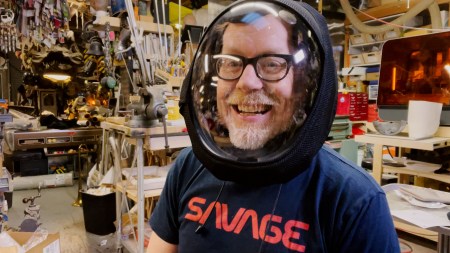

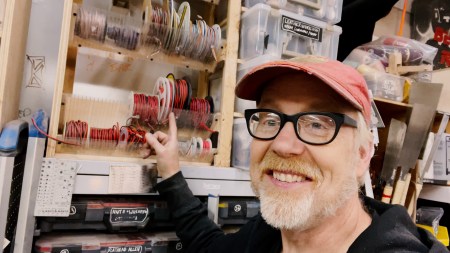


Video is being replaced due to an audio glitch. MP3 should work in the meantime. Sorry!
Yeah, sounded like something got messed up on the left channel.
I know you guys have had the occasional audio problem in the past, if you aren’t using it already I very highly recommend iZotope’s RX – https://www.izotope.com/en/products/repair-and-edit/rx.html for repairing/cleaning up audio for post production. It is utterly magical the sort of cleanups it can automate and make easier.
The Extremely Large Telescope should have a resolution of .001 arcseconds at best. At the moons parigee, that’s around 1.75 meters… So if you used letters that were a few meters in size you could potentially read a sign on the moon.
I don’t mind you getting political, the problem is you add nothing beyond the conventional CNN talking points. I have political podcast that I listen to the give me much more insight, that’s why I listen to them for politics and I listen to you for technology. It’s also very interesting to listen to you all agree. It’s just no way to get to the truth. If you were being intellectually honest you would at least acknowledge there are other legitimate sides to these complex issues.
It’s also unfortunate that this always seems to get worse when Will Smith is a guest. You want to guarantee millions of more people on unemployment than Institute UBI.
Y’all do realize that, by default, a “Universal Livable Wage” necessarily requires Government Regulation of EVERYTHING necessary to live? Are we sure that turning food production and pricing, energy, housing, and all of healthcare over to the government is a good idea?
Also, since there’s never been a case in all of human history of a society where all people were provided all that they needed to live without having to provide any sort of labor. Are we certain such a thing can even exist, especially given how irrational and troublesome human nature tends to be? I can easily see that not going well at all. In fact, I can see it going apocalypticly bad.
I’m not convinced by any stretch that UBI is the right solution. But remember, most have yet to learn about this concept, let along investigate the options for themselves. Speaking for myself, I hope to link to some papers on the topic given how tech leaders are talking about it. I have many concerns about short term instability about switching over to UBI – but its well worth thinking about given the encroachment of automation.
There have been updates to the google home. It can ID different people and update more than one calendar now.
https://support.google.com/googlehome/answer/7029002?utm_source=EMAIL_H_M_1_B__100075111_10037235_201706030323__us__learn_more_multi_cal_en-us&utm_campaign=100075111_10037235_201706030323&utm_medium=EMAIL_H_M_1_B&utm_term=learn_more_multi_cal_en-us&utm_content=us#multicalendar
Two other points about the UBI – first, the tech leaders are talking about it, yes, but they’re also the ones responsible for pushing and funding the problem in the first place. If you take a cynical view, which is my favorite angle, you have tech companies pushing for automation and AI advances in order to make a TON of money by owning the technology that will drastically reduce labor costs for all other businesses (so much for being on “Team Human”). Then, since odds are their requirements cannot be met by full on AI or automation (we’re not quite at the level of robots being able to program robots), they get another huge cash windfall by having a UBI put in place so that they’re own labor costs for their own employees would be reduced to only the funding above and beyond the UBI as “competitive” salaries. Meanwhile, they also won’t stop their push for increased immigration and increased visa workers which would continue to drive labor costs (for them) down while increasing the job seeker pool at a time when the available jobs pool is steadily shrinking (by their own direct efforts).
At what point do we all start asking the Jurassic Park question – “Hey guys, just because you can, maybe that doesn’t mean you should?” I’m all for Bill Gates idea of putting a tax on any business working on automation and AI, only I’d make it a truly crippling tax with only very specifically defined exceptions (i.e. cases where the work is clearly being done to preserve human life, like creating better explosive ordinance defusing devices)
Also, the second point, Will seems to be approaching UBI in his commentary from a perspective that there’s some sort of universal right for all people to be supported in creating their own business. While I acknowledge that it’s very hard and requires a lot of risk and investors . . .etc. to create a business, I don’t see how that’s a problem. That’s always been the case – take big risks for big rewards, or take the safe path and avoid the risk. I really do admire Will for taking the risks with Foo and putting in all the work to make his vision come true, but at the same time that was completely his choice and, had he wanted, he could have just continued at Tested.com with a steady job without incurring any of that extra risk or work. I can see a case for Universal Healthcare (albeit not the way we’re doing it in the USA), but I just don’t see the need to create a social safety net that now also includes entrepreneurs. That seems like a bridge too far.
I’m with Jeremy on his grilling comment. While I acknowledge that understanding some of the scientific principles behind cooking can be invaluable, I can’t agree with Will’s trashing of tradition, experience, and the sheer fun and adventure of cooking in favor of a soulless kitchen of precision robots. Talk about sucking the life out of the culinary experience!
Incidentally, I recently saved up some money and bought the Baking Steel (which was in vogue on Tested.com a few years ago, I think). Our first pizza experiment will be this Wednesday, but I’ve already used the griddle side on my grill to cook smashed hamburgers. It’s taken 3 different tries, and I’ve gotten a little better each time. They do taste miles and miles better than any traditional grilled hamburger I’ve had, but you definitely have to eat them while they’re hot!
This episode had the best What Have You Been Testing? section I’ve heard in MONTHS.
Jenemy, please pass this on to the rest of the staff, BanDai 1/72 scale Millennium Falcon
http://kotaku.com/380-millennium-falcon-may-as-well-be-in-the-movies-1795804815
Great podcast. I’m curious as to where is the link to watch the Star Trek Bridge Crew VR that you guys recorded on Twitch and you tube?
Thanks
and other tested peeps,
I am firmly in the camp of believing that climate change is
real and humans are having a very real impact on global temperatures and the
make up of our atmosphere, and all the negative impacts that this has on our
planet.
I had a conversation with a climate sceptic today. As we
were talking, I realised I was failing to create a coherent argument for
climate change being reality. As an engineer/scientist raised on the scientific
method, my ‘belief’ in climate change comes from a variety of sources, but
mainly from the trust I place in others that are performing climate studies and
that also share my evidence based approach to work. In effect, I am trusting
their methods as much as their results and conclusions.
It seemed that this particular person was rejecting the
whole climate change argument because of essentially the existence of error
bars and climate models not being 100% accurate. He also stated a number of
“reports” which claim that the levels of atmospheric CO2 and average
global temperatures do not correlate over time.
As a man of science, I am bred to form
my own conclusions with the available data. There is always that uncertainty,
however small, in any conclusion. There is a big difference between being 99%
sure of something and rejecting the whole thing because you are not 100% sure
of something.
Why is evidence based science such a hard concept for people
to understand? How do you approach explaining climate change evidence? What are
your “best” sources of information for constructing a coherent
argument against climate sceptics?
Always be testing, Andrew
I know you directed your question at the Kishore, so I’ll defer to him. However, if I could add my own 2 cents, I might mention a few things.
First, I know this wasn’t your direct question, but it is important to not confuse the Paris Treaty with the actual science behind climatology. The Paris Treaty, as Kishore hinted at, is really nothing more than a paper tiger if it is even that. For example, China double-down on its commitment, yes, but China’s commitment is to not even begin to reduce carbon emission until 2030. Think about that – they’re the number one carbon producer, the biggest player in this scenario, and everyone is very excited that they’ve agreed to simply stop increasing their emission in about 13 years or so. On top of that, there’s nothing binding to the Paris Treaty as in no policing of the agreement and no penalties for not meeting the terms of the agreement. So it’s just on the honor system. That tends to not work in real life on the geopolitical scale (otherwise why would we need UN nuke inspectors, right? If Iran gave us their word . . . .)
Second, related to the first, many folks I’ve talked to are more skeptical of the proposed solutions than they are of the actual science behind climatology (although there are certainly some who flat out deny or reject the scientific models behind the climate change argument). Do be more direct, folks are skeptical of politicians and corporate CEOs. Most folks tend to distrust politicians and large, beuracratic governments because they have proven, more often than not, to be easily corruptible and often very inept. Folks tend to think that politicians, who are not scientists, only support this movement because they stand to gain something by it (that whole “never waste a crisis” mentality). They doubt much good will come of any of it, but they notice folks like Al Gore living in mansions, flying in private jets, and making lots of money on speeches and are naturally skeptical.
Same goes for folks like Elon Musk. I’m not saying he’s not being earnest, but the average person looks at this guy who has made almost half his net worth off of government subsidies for green energy projects and think to themselves, “Hmmmm, it sure looks like he stands to gain a lot.” I know they mentioned the Exxon CEO, but Exxon has invested a TON of money of late into renewable energies and, thus, has a financially vested interest in government continuing to subsidize and promote those energies.
Even someone like Bill Nye makes a living off of this stuff. His public championing of the Climate Fight has garnered him a Netflix show.
So think of it from that perspective. It may not necessarily be that the evidence is not convincing – it might be that the spokesmen who seem to have publicly taken up the cause are not winning the public trust. If it’s always looking like they’re personally profiting by supporting climate change, maybe that’s sending out the wrong signal?
A final thought (I promise!) – the alarmist scenarios haven’t really helped. I know what’s past is past, but the constant talk of impending doomsday events that never came to past hurt the credibility of the cause in a lot of eyes. It made the movement look a lot like the early Watchtower Society. When we live in a world where there’s a terrorist attack on what seems like a daily basis and North Korea is trying to launch a nuclear missile – taxing carbon emissions and subsidizing solar companies doesn’t seem like the wolf closest to the sled. Especially after promised catastrophes failed to occur. In the long run it might be the bigger threat, but there are folks who are legitimately concerned about the short run right now.
Most folks I’ve encountered really aren’t anti-Science. There may be very understandable, rational reasons they’re not “100% onboard the fighting Climate Change” train. Reasons other than, “I reject evidence based reason” or “I hate science.” In fact, I do know folks who really do believe in Climate Change but who are happy America pulled out of the Paris Treaty.
Sorry – I know that was probably more like a quarter’s worth of rambling vice 2 cents.
It is rather telling that Elon Musk had no problems with the previous policies of the president and his administration, as much as they fly in the face of everything he has claimed to stand for… like you, I don’t doubt he was earnest when defending that by saying “it is more important to have a seat at the table”.
Yet as soon as he sees that he himself isn’t being listened to, and stands to lose a lot of money from what the admin is doing, he is out the door within 20 minutes.
Musk is, to put it mildly, a single-issue activist, which happens to be the one directly tied to his net worth and image.